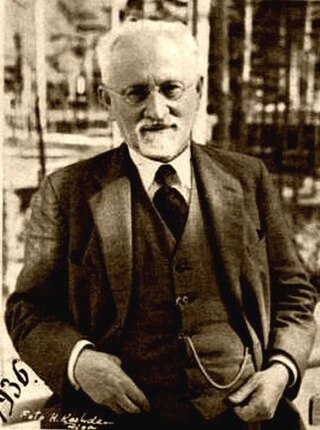Related Research Articles

Abraham Joshua Heschel was a Polish-American rabbi and one of the leading Jewish theologians and Jewish philosophers of the 20th century. Heschel, a professor of Jewish mysticism at the Jewish Theological Seminary of America, authored a number of widely read books on Jewish philosophy and was a leader in the civil rights movement.

Zionism is a nationalist movement that emerged in the 19th century to enable the establishment of a homeland for the Jewish people in Palestine, a region roughly corresponding to the Land of Israel in Jewish tradition. Following the establishment of the modern state of Israel, Zionism became an ideology that supports "the development and protection of the State of Israel".

Heeb is a Jewish website aimed predominantly at young Jews. The name of the publication is a variation of the ethnic slur "hebe", an abbreviation of Hebrew. However, in this case, the word "heeb" seeks to function as empowerment for the Jewish community, thus eliminating the hatred associated with the word.
African-American Jews are people who are both African American and Jewish. African-American Jews may be either Jewish from birth or converts to Judaism. Many African-American Jews are of mixed heritage, having both non-Jewish African-American and non-Black Jewish ancestors. Many African-American Jews identify as Jews of color, but some do not. Black Jews from Africa, such as the Beta Israel from Ethiopia, may or may not identify as African-American Jews.

Jewish Autonomism, not connected to the contemporary political movement autonomism, was a non-Zionist political movement and ideology that emerged in the Russian and Austro-Hungarian empires, before spreading throughout all of Eastern Europe in the late 19th and early 20th century. In the late 19th century, Jewish Autonomism was seen "together with Zionism [as] the most important political expression of the Jewish people in the modern era." One of its first and major proponents was the historian and activist Simon Dubnow. Jewish Autonomism is often referred to as "Dubnovism" or "folkism".

Argentine postage stamps were first issued in 1858 by the Argentine Confederation and nationally by the new Republic's National Postal Service in 1862. Due to the continuing civil wars, a number of provinces and territories, particularly in the then-remote far north and far south, continued to issue their own postage brands and stamps for some time, afterwards; some of these issues have since become collectors' items.

Zwi Migdal was a criminal organisation founded by Jews in Poland in the 19th century, based mainly in Argentina.

The history of the Jews in Argentina goes back to the early sixteenth century, following the Jewish expulsion from Spain. Sephardi Jews fleeing persecution immigrated with explorers and colonists to settle in what is now Argentina, in spite of being forbidden from travelling to the American colonies. In addition, many of the Portuguese traders in the Viceroyalty of the Río de la Plata were Jewish. An organized Jewish community, however, did not develop until after Argentina gained independence from Spain in 1816. By mid-century, Jews from France and other parts of Western Europe, fleeing the social and economic disruptions of revolutions, began to settle in Argentina.

The history of the Jews in the Roman Empire traces the interaction of Jews and Romans during the period of the Roman Empire. A Jewish diaspora had migrated to Rome and to the territories of Roman Europe from the land of Israel, Anatolia, Babylon and Alexandria in response to economic hardship and incessant warfare over the land of Israel between the Ptolemaic and Seleucid empires from the 4th to the 1st centuries BCE. In Rome, Jewish communities thrived economically. Jews became a significant part of the Roman Empire's population in the first century CE, with some estimates as high as 7 million people; however, this estimation has been questioned.

Gabriela Böhm is an independent documentary filmmaker from Buenos Aires, Argentina now living in Los Angeles.

International relations between Argentina and Israel, have existed for decades. Both countries established diplomatic relations on 31 May 1949.
The Lowestoft Chronicle is a quarterly online magazine that publishes short stories, flash fiction, poetry, creative nonfiction, interviews, and artwork. An anthology of the best work is published annually. Preference is given to humorous submissions with an emphasis on travel. The magazine is headquartered in Boston, Massachusetts.
Romanian Argentines are Argentine citizens of Romanian descent or a group of Romania-born people who nowadays reside in Argentina.

Raanan Rein is the Elías Sourasky Professor of Latin American and Spanish History and former Vice President of Tel Aviv University. Since 2005 Rein is the Head of the S. Daniel Abraham Center for International and Regional Studies. He is a member of Argentina's National Academy of History, and former President of the Latin American Jewish Studies Association (LAJSA). The Argentine government awarded him the title of Commander in the Order of the Liberator San Martín for his contribution to Argentine culture. The Spanish government awarded him the title of Commander in the Order of Civil Merit. His current research deals with Jewish Argentines and Peronism, sports and politics in Argentina, Jewish Self-Defense organizations, and Jewish volunteers in the Spanish Civil War.

Annika Hernroth-Rothstein is a Swedish journalist and activist. In 2020, she published her first book, Exile: Portraits of the Jewish Diaspora. The Algemeiner Journal considered her one of the top 100 people positively influencing Jewish life.

Mosaic is an online magazine of Jewish ideas, religion, politics, and culture which was established in June 2013.
Antisemitism in Argentina is a significant issue for the Jewish community in the country as well as Argentina in general.
Nueva Presencia was a Jewish newspaper in Buenos Aires, Argentina. It was published weekly from 1977 until 1987 with Herman Schiller as the founding editor-in-chief, and continued to be published after Schiller left until its last issue in 1993. It was the first publication that advocated for human rights during the Dirty War and National Reorganization Process, and it regularly criticized the government.
Zionist antisemitism is the phenomenon in which individuals, groups, or governments support the Zionist movement and the State of Israel while simultaneously holding antisemitic views about Jews. In some cases, Zionism may be promoted for explicitly antisemitic reasons. The prevalence of antisemitism has been widely noted within the Christian Zionist movement, whose adherents may hold antisemitic beliefs about Jews while also supporting Zionism for eschatological reasons. Antisemitic right-wing nationalists, particularly in Europe and the United States, sometimes support the Zionist movement because they wish for Jews to be expelled, or for Jews to emigrate to Israel, or because they view Israel as a supremacist ethno-state to be admired and held up as a model for their own countries.
References
- 1 2 3 4 Popper, Nathaniel (December 23, 2006). "A Magazine for the Far-flung". The Forward. Retrieved January 9, 2024.
- ↑ "Reclaiming Travel". Duke University Press. Retrieved January 10, 2024.
- ↑ "Habitus". Joshua Ellison. Retrieved January 10, 2024.
- 1 2 3 "The Chaos of Memories". eJewish Philanthropy. February 8, 2008. Retrieved January 10, 2024.
- ↑ "Events Archive - Spring 2008: Center for the Writing Arts - Northwestern University". www.northwestern.edu. Retrieved January 10, 2024.
- ↑ Fensterstock, Alison (December 7, 2008). "Jews, After the Storm". NOLA.com. Retrieved January 10, 2024.
- 1 2 3 4 "Journal · Habitus". Habitus Mag. Archived from the original on February 9, 2013. Retrieved January 10, 2024.
- ↑ "Habitus · A Diaspora Journal". Habitus Mag. Archived from the original on May 10, 2012. Retrieved January 10, 2014.
- 1 2 "Habitus: A Diaspora Journal - An Anthology". Goodreads. Retrieved January 11, 2024.
- ↑ "Habitus · A Diaspora Journal". Habitus Mag. Archived from the original on July 15, 2014. Retrieved January 11, 2024.